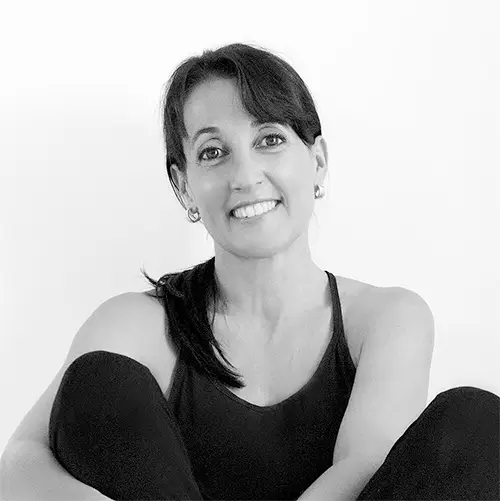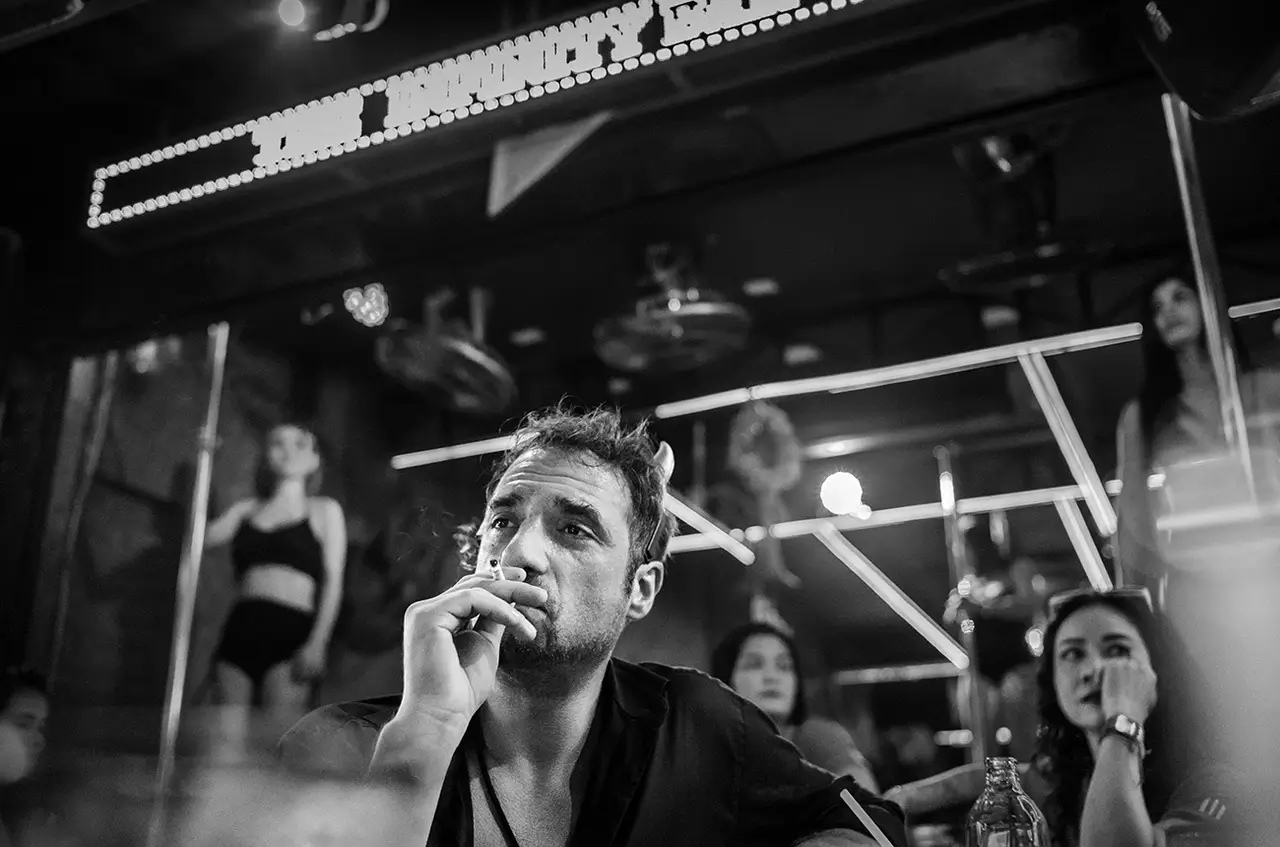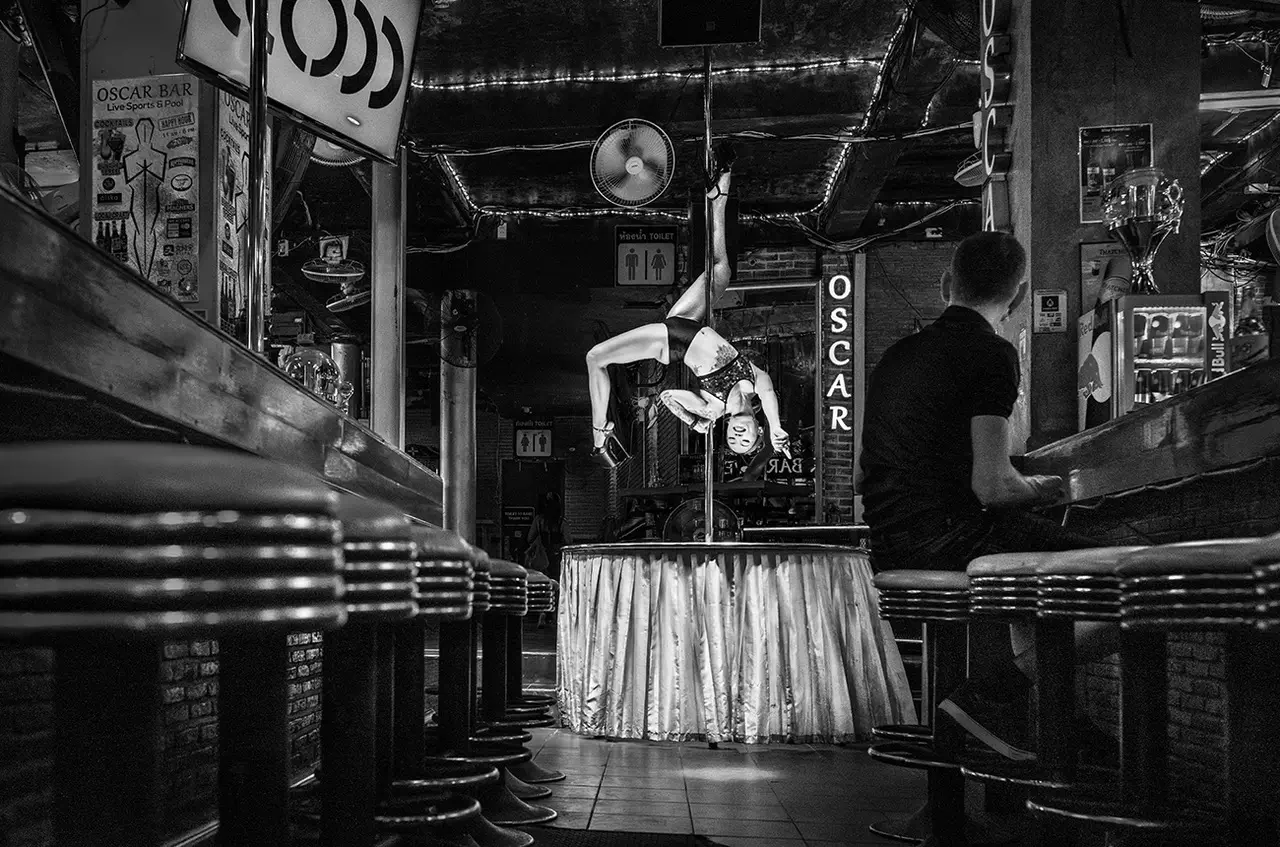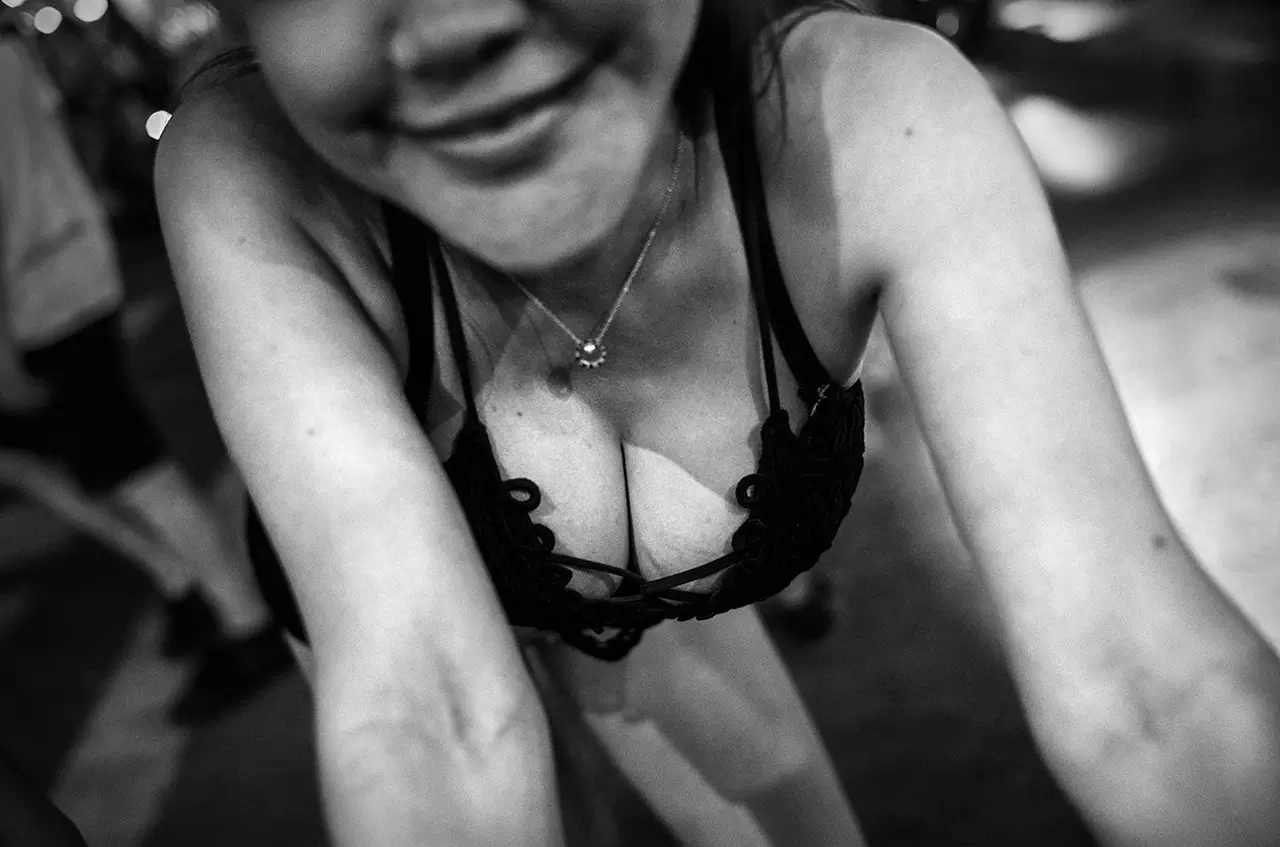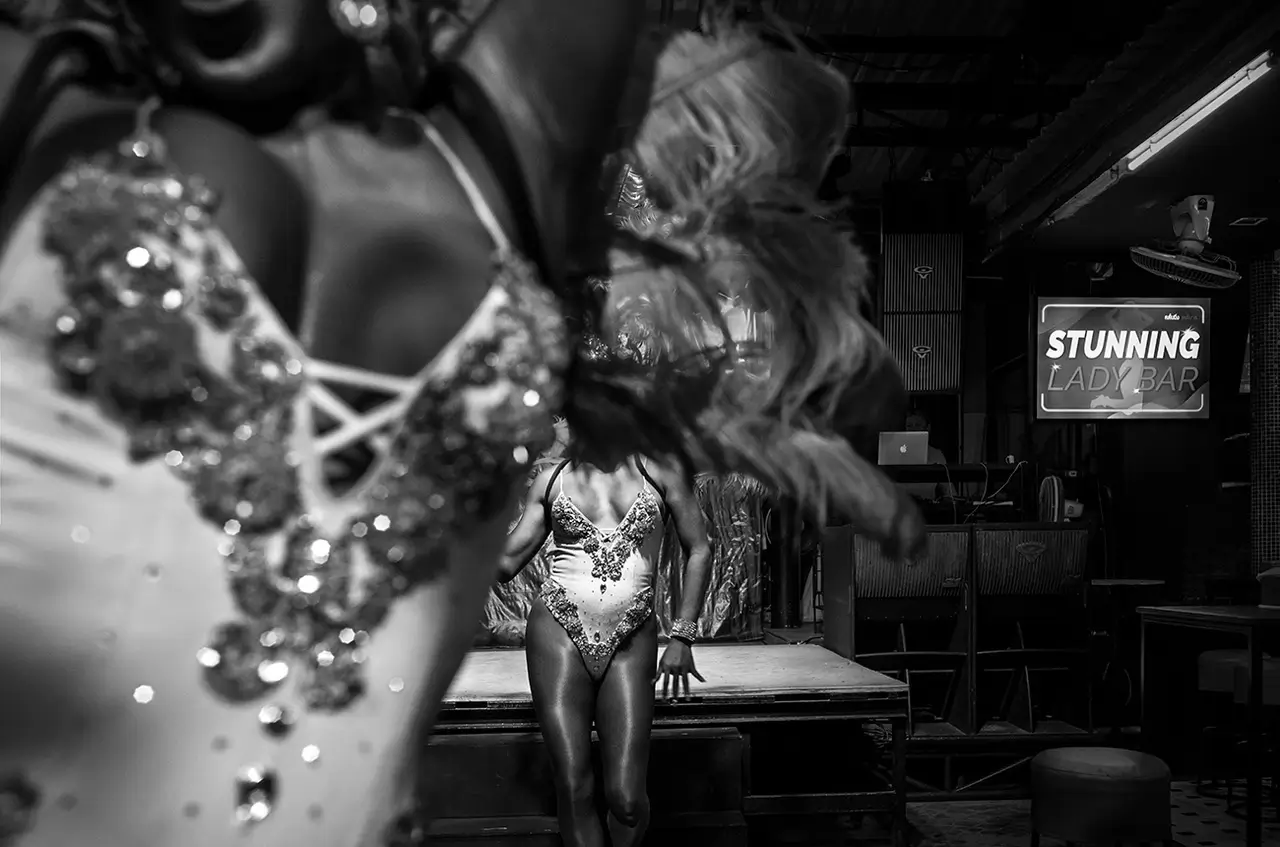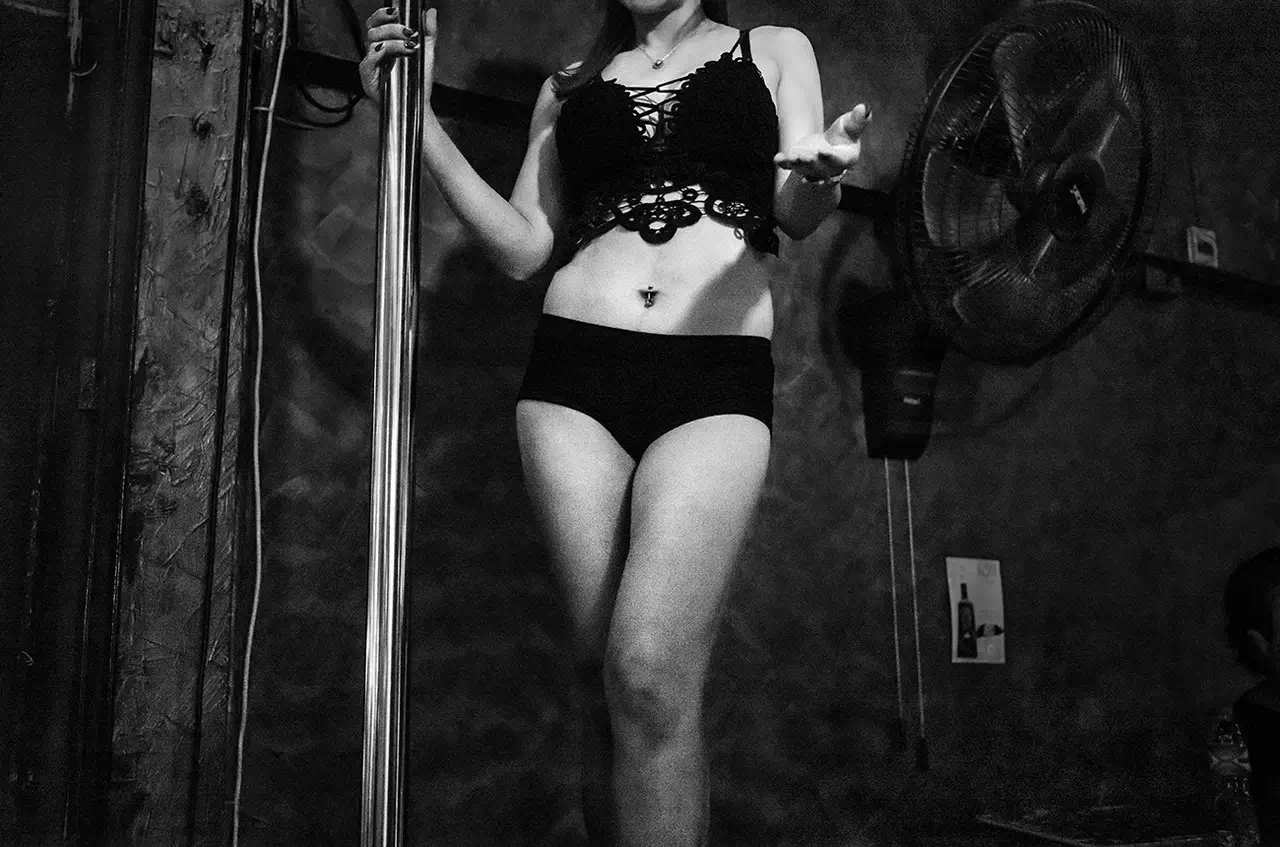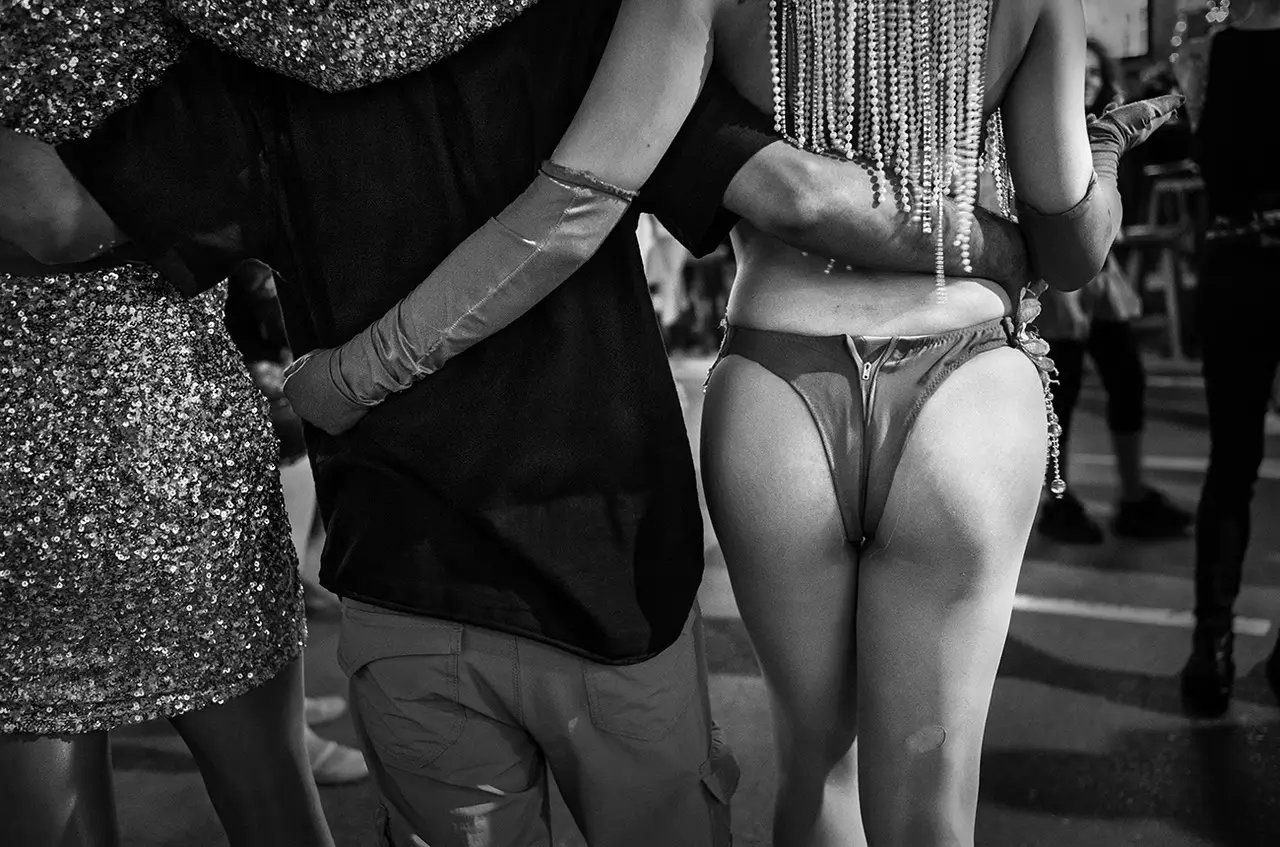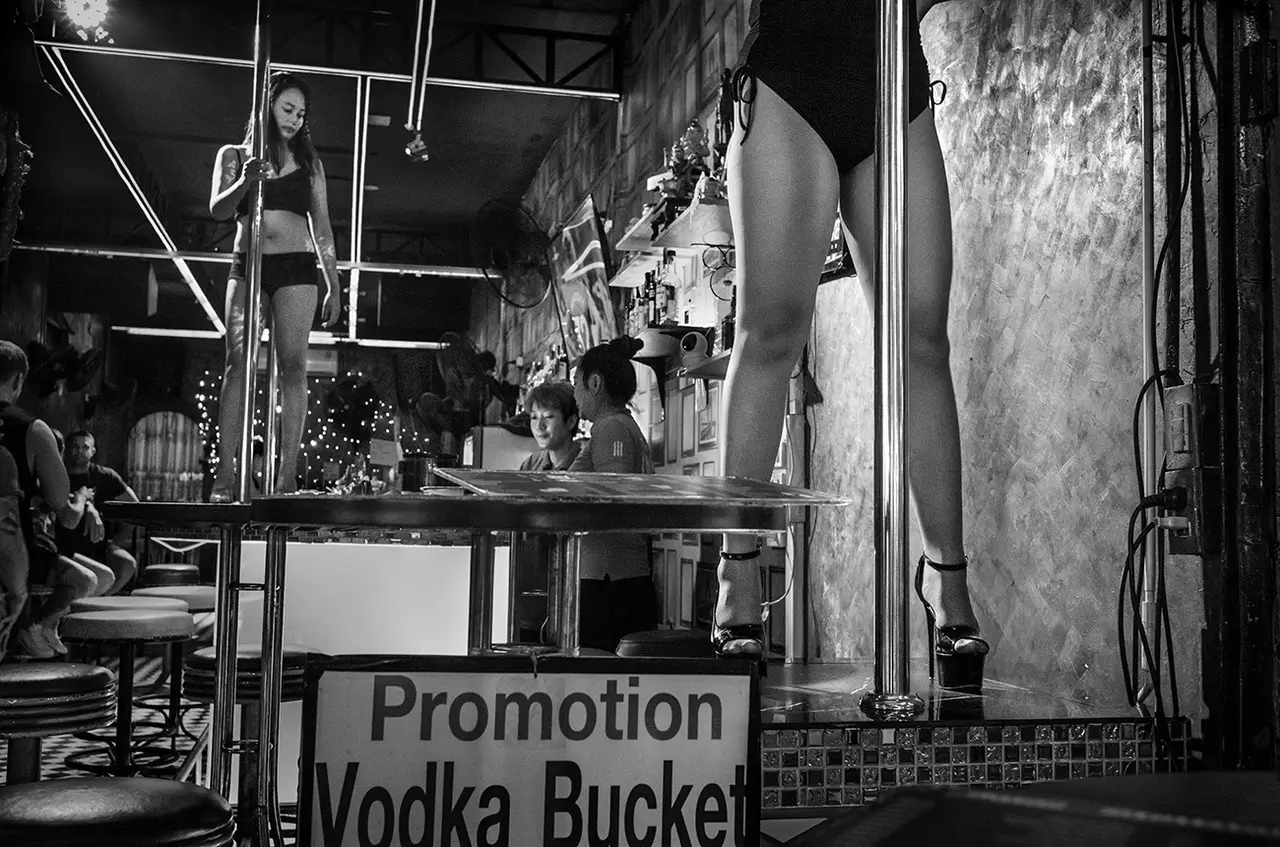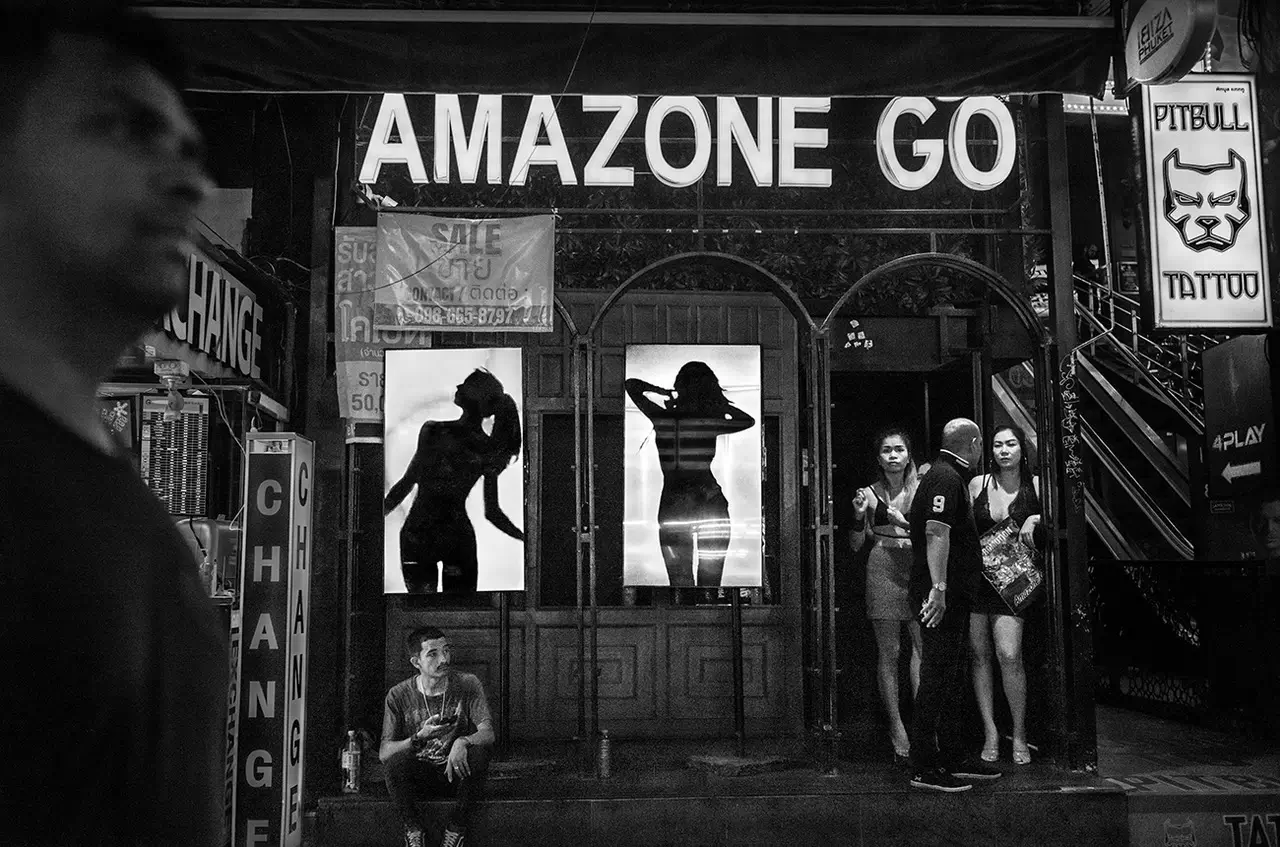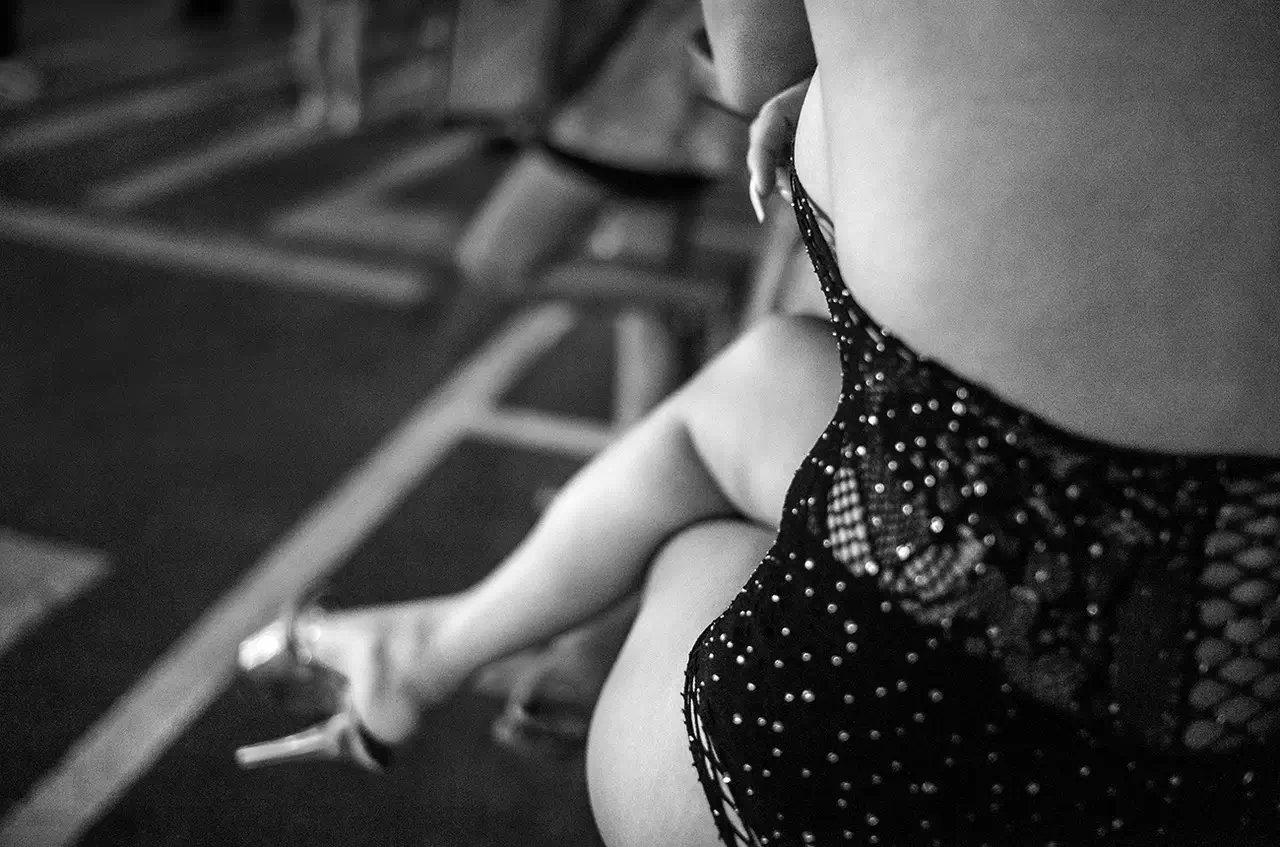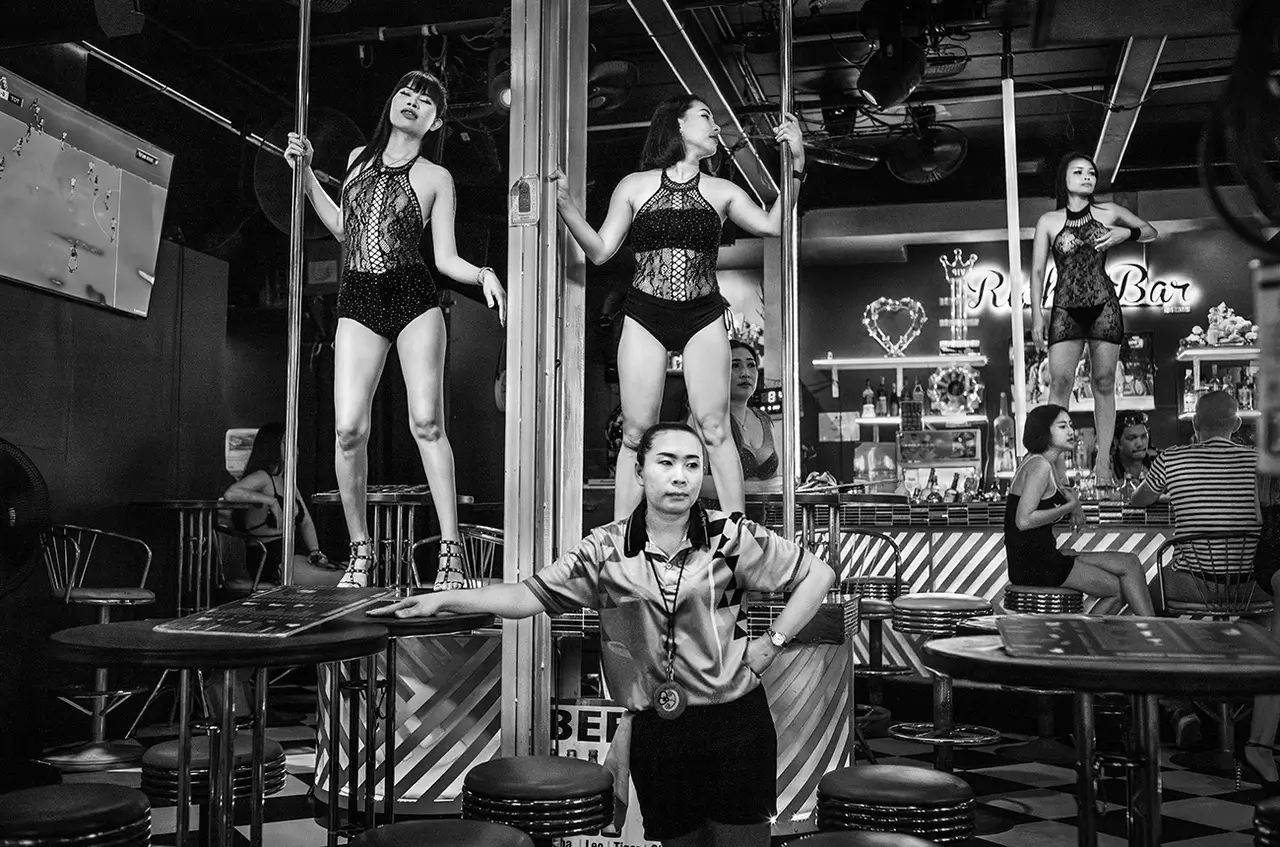Tebani Slade is a fine art, street, and documentary photographer whose work bridges continents, blending the raw authenticity of her Australian roots with the vibrant energy of her second home in Barcelona. Known for her thoughtful approach to storytelling, Tebani immerses herself in unfamiliar settings, capturing unscripted moments that reveal profound truths about the world around her. She won a solo exhibition with her series '
Bangla Road, Life After Dark'.
We asked here a few questions about her life and work:
All About Photo: Can you give a litle background about yourself and how you got started in photography?
Tebani Slade: Photography for me started very young. My mum was always photographing us as
children and I think that had a great influence on me. I always loved looking at the
photos. Then when I was in high school my art teacher held a photography class. Of
course I was excited for this. We set up a make ship darkroom in a school storeroom.
It was basic and raw but from the moment that first print came out of the developer I
was hooked. We experimented with monograms inspired by Man Ray’s rayographs.
From that point I new I wanted to be a photographer.
What was some of your earlier work like? What inspired you then?
While in college for the Arts my focus was mostly social documentary and fine art.
The Still Life was something I found I was really good at. Being influenced by the
works of Olivia Parker. But I was also heavily influenced by other masters like
Henri Cartier Bresson,
Ernst Haas,
Harry Callahan and
Sally Mann.
Back then we used film and I spent a lot of time in the darkroom, which I found very
therapeutic. It was a slower process and I think that sort of thing is missing today
with the instant digital image. In saying that I do appreciate not having to breath in
chemicals all day.
What drew you towards capturing 'Bangla Road, Life after dark' in Phuket?
Bangla Road, Life After Dark series wasn’t completely planned. I had visited this place
many times before but for some reason this time I felt the need to capture it with my
camera. It kind of really just fell into place. It started with just a few images and from
there I continued to go back.
What was the people's response to your camera?
I think having a camera encouraged communication with my subjects. I was actually
inspired by them and I think that is what made this series connectable to me. Also
using a Leica M10r which is small helped. Not so much in your face.
What made you choose black and white?
I chose to produce this series in black and white as Bangla Road is a very colourful
place, full of neon flashing lights. I wanted to pull it back, simplify it, to draw
attention to the subjects. In a sense quiet it down.
What was your process for capturing these subjects? Was it challenging?
What equipment did you use?
My biggest challenge was shooting in very low light conditions. Pushing my ISO up
and at times using a very wide aperture. So focus became my biggest hurdle. The
Leica M10r is a manual focus camera, so using the summilux 35mm f/1.4 lens
allowed me to prefocus.
Using high ISO’s isn’t so much of an issue now with the high dynamic ranges of the
cameras. But noise is something I don’t mind. It takes me back to film days when you
would push process your film and the results became more grainy with more contrast
and I like that sort of thing. So processing digital images with high noise isn’t so bad. I
don’t like to take all the noise out. I think if you do that it takes away the authenticity
of the image.
Another challenge is controlling the highlights, so I tend to underexpose my images
quite a bit in these situations where there are bright lights in dark places. In saying
that I do love a high contrast image and I think with this series it adds to its truth.
What advice would you give someone who would like to become a photographer
today?
One advice I would give to someone stating in photography is to not get bogged
down in the technical side of things or what equipment you’re using. Concentrate
more on what your work is about. Find your truth in what you are doing. And to enjoy
the journey, all of it. The good, the bad and all it’s challenges.
Favorite(s) photographer(s)?
Today I think I’m more influenced by photographers such as David Alan Harvey,
Saul Leiter,
Harry Gruyaert, Alex Webb and Rebecca Norris Webb and
Todd Hido. Too
many... Actually I appreciate all photographers but I suppose it’s not so much the
photographer but the image that speaks to me more.
What is your personal opinion on the advent of Al in photography, specifically?
This is definitely a hot topic at the moment. I look at it like this. Originally there was
glass plates, then film and then came the digital image, now with AI we can by pass
all that. So for me AI has it’s purpose but I feel it’s really not photography. It isn’t
capturing an image from real time/life. I believe it is and art form on it’s own but it
isn’t photography.
But it is only my opinion and others may argue with me and for sure they have the
right to their own opinions. There is always controversy in art.
What future projects or subjects are you looking forward to getting to?
Currently I am living in Barcelona. A very vibrant and exciting city. I am working on
capturing my time here. It is a way for me to feel comfortable in a new place. A way
for me to get to know it, to familiarise myself with it, to connect to it.
